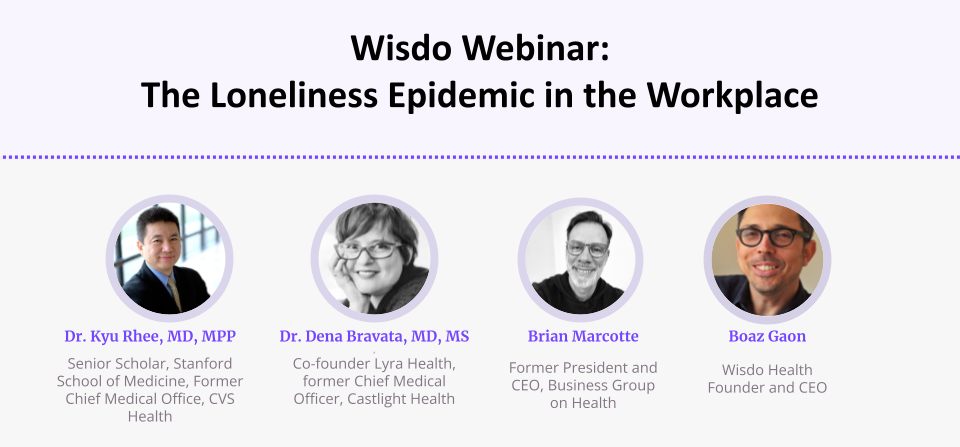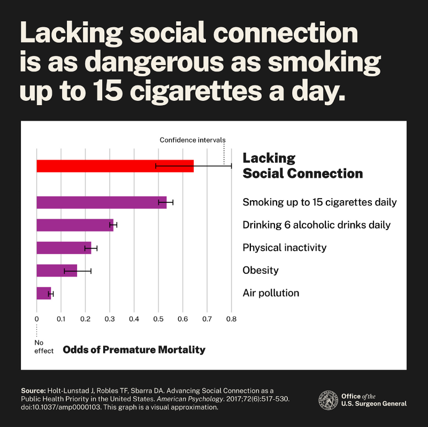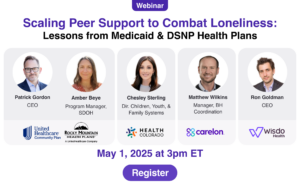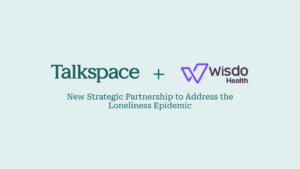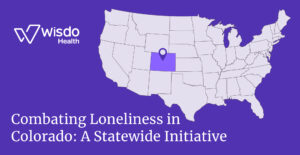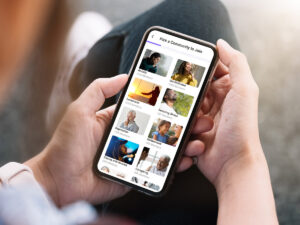In May 2023, the US Surgeon General, Dr. Vivek Murthy, released the first-ever Advisory on the Loneliness and Social Isolation Epidemic. In this important report, the Surgeon General called social connection a fundamental human need, as crucial for survival as food, water, and shelter.
The report also indicates that a lack of social connection is as dangerous as smoking up to 15 cigarettes a day!
Over 50% of US adults experience loneliness and social isolation. Loneliness and isolation are more widespread than many of the other major health issues of our day, including smoking (12.5% of U.S. adults), diabetes (14.7%), and obesity (41.9%), and with comparable levels of risk to health and premature death.
Loneliness is most prevalent among young people (79% of adults 18-24), minority groups (75% of Hispanic adults), and Medicaid members (72%). Lonely adults are 2x more likely to develop depression and anxiety.

The cost of loneliness is also tremendous. It is estimated that loneliness costs employers $154B a year in stress-related absenteeism attributed to loneliness. Loneliness among older adults accounts for an estimated $6.7B in excess Medicare spending annually, mostly due to increased hospital and nursing facility spending.

Given the vast impact of loneliness and social isolation on the workplace, we convened three distinguished leaders to discuss implications and opportunities for interventions. Dr. Kyu Rhee, Dr. Dena Bravata, and Brian Marcotte. The conversation was moderated by Wisdo Health Founder and CEO Boaz Gaon.
Wisdo Health is an evidence-based peer support community and social health platform. We work with health plans, employers, and government agencies interested in reducing the harmful consequences of loneliness, social isolation, and lack of engagement on health outcomes and costs. Learn more here
Here are five key takeaways from the discussion:
- Creating Awareness and Mobilizing Action: Loneliness and social isolation are more widespread than previously realized. Employers often underestimate the magnitude of this issue. However, social connection has the potential to improve physical, cognitive, and mental health, as well as longevity. By creating awareness within the healthcare system, employers, payers, providers, and policymakers can align resources to address this challenge effectively.
- The Need for Regular Screening and Education: Systematic screening for loneliness at the population level has been lacking. Clinicians, including primary care doctors and those responsible for employee populations, need to prioritize loneliness screenings as they do for other common mental health issues. The UCLA Loneliness Scale is a validated tool that can be used for this purpose.
- Expanding Wellness Solutions to Include Social Connectedness: Traditional wellness programs have typically focused on physical health, but the concept of well-being has evolved to encompass various dimensions, including mental, emotional, and financial aspects. However, social connectedness has often been overlooked. Employers now recognize the opportunity to incorporate social connectedness into their well-being strategies. Mentoring programs, group volunteer efforts, and peer communities can all contribute to fostering a sense of social connectedness in the workplace and should align with the company’s goals.
- The Type of Connections We Built Matters: Effective interventions should connect individuals with others who have experienced similar challenges. Peer support, in addition to traditional mental health interventions, can provide emotional support and a sense of belonging. By leveraging the power of peer support, individuals can both receive and offer support, leading to improved overall health and well-being while improving workplace productivity. Identifying potential leaders within the workplace who can have the ability to communicate a sense of worth, belonging, and emotional support can be impactful in building and promoting social connection.
- Peer Support is a cost-effective and evidence-based approach for eliminating loneliness: By leveraging the power of AI-driven technology, human connection, and shared lived experience, peer support platforms provide a highly scalable, data-driven, and cost-effective solution to reduce loneliness and improve mental health. One year of access to a platform such as Wisdo is equivalent to the cost of one teletherapy session.
Multiple studies have shown that the Wisdo platform reduces rates of anxiety, depression, and loneliness and provides our clients with a strong business case, often reaching 6:1 ROI, by reducing avoidable medical costs, reducing absenteeism attributed to loneliness, and improving mental health.

The evidence is clear: social connectedness is fundamental to individual health and well-being. Employers, healthcare providers, and policymakers have a vital role to play in addressing social isolation and loneliness. By creating awareness, implementing regular screenings, expanding wellness solutions, fostering a culture of connection, and integrating peer support interventions, organizations can create a positive impact on employees’ overall health and well-being. Prioritizing social connectedness alongside physical and mental health will lead to more resilient and thriving individuals and communities.
A special thank you to our esteemed panelists for participating in this important conversation. The entire recording of the webinar may be viewed here.
We are excited to partner with innovative employers, health plans, and government agencies that are invested in providing healthy social connections to their populations to lower the costs of health and improve productivity and engagement in care.
If you are interested in booking some time with Wisdo to learn more about how we work with employers, health plans, and government, contact us at inquiry@wisdo.com

